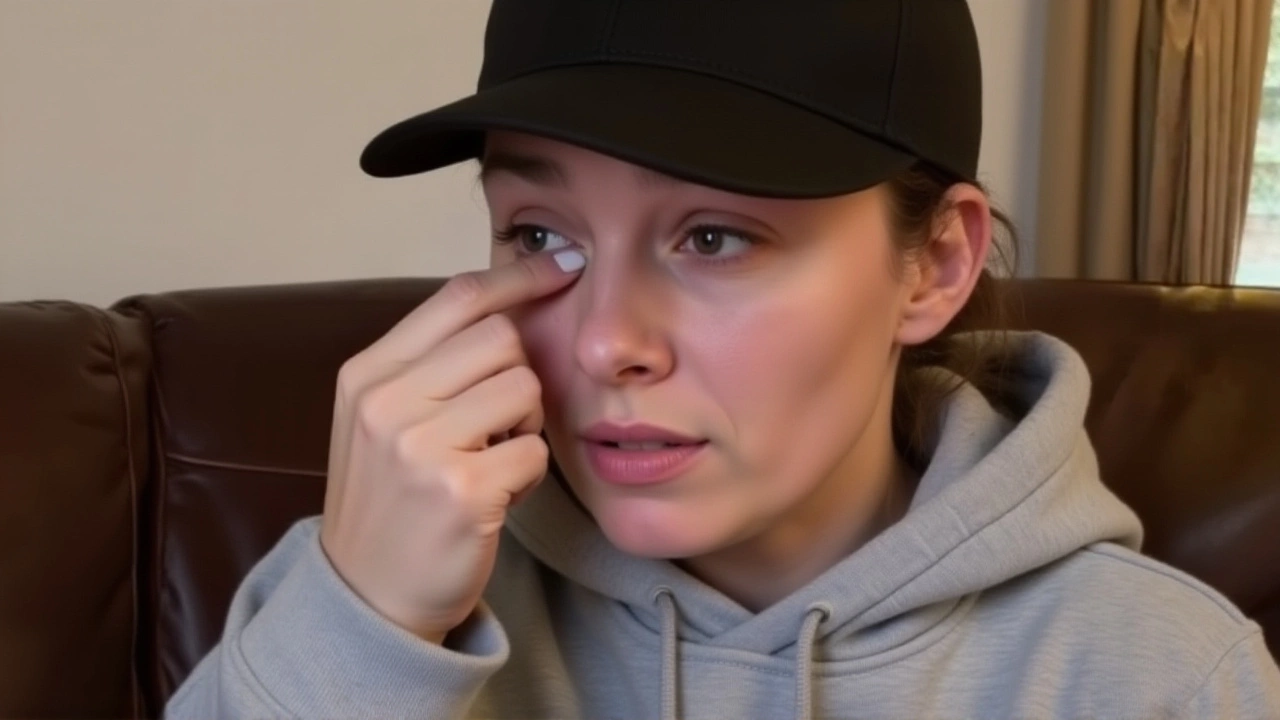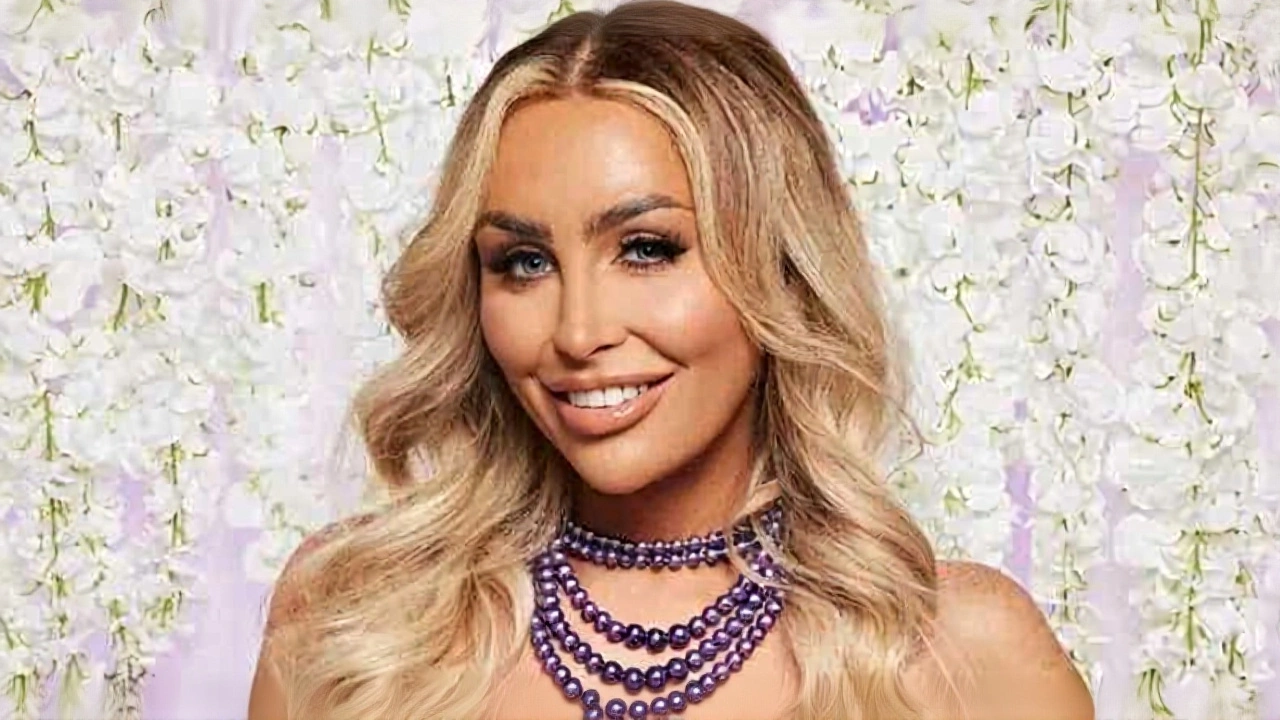When Ella Morgan stepped onto the set of Married At First Sight UK in April 2024, she didn’t just sign up for a reality TV experiment—she stepped into a national spotlight that would soon turn hostile. The 29-year-old transgender woman, the first openly trans bride in the British version of the franchise, walked away from Instagram, Twitter, and Facebook in mid-June after enduring what she called “constant abuse” tied to her gender identity. The breaking point came after a dramatic episode aired on June 10, 2024, where her secret romantic connection with fellow contestant JJ Slater triggered chaos—and a wave of transphobic vitriol that spilled from screens into the streets.
The Drama That Ignited the Storm
Morgan was initially paired with Nathaniel Valentino, a 31-year-old Londoner, during the show’s 2024 season, which premiered on Channel 4 on May 20. But as filming progressed, she formed a bond with Slater, who was matched with Bianca Petronz, a 28-year-old from Manchester. Their secret date—a candlelit dinner—ended in tears, and when Valentino discovered the truth during the now-infamous dinner party episode, he walked out, saying: “I’m leaving. I don’t want to be here anymore. I think I’ve lost myself in the whole of this storm.” Morgan, visibly shaken, took to Instagram Stories to clarify: “We didn’t kiss.” She didn’t apologize for her feelings, but for the pain caused. “My transition has nothing to do with what happened tonight,” she wrote. “It is entirely irrelevant.” That didn’t stop the trolls.From Online Harassment to Real-World Fear
What followed wasn’t just a flood of hateful DMs—it was a full-scale campaign. Comments linked her gender identity to the betrayal narrative, implying her transition was a “ploy” or “manipulation.” Some users called for her to be “dealt with.” Others sent images of violence. According to The Independent’s June 17 report, the abuse didn’t stop at her phone. “I am abused on the train and can’t go to the gym,” Morgan told the outlet. “I used to love running. Now I’m scared to leave the house.” The timing couldn’t have been worse. The episode aired during Trans Awareness Week, a period meant to uplift trans voices—not drown them. And yet, Morgan’s experience mirrored a broader trend: as visibility increases, so does targeted hostility. Her case is not isolated. In 2023, the UK government blocked Scotland’s Gender Recognition Reform Bill, fueling national debate that often conflated policy with personal identity. Trans people in the UK now report a 47% increase in hate incidents since 2020, according to the Home Office—though official figures likely undercount the true scale.Support From Within the Show
Not everyone turned against Morgan. Fellow cast member Laura Vaughan, a 33-year-old from Birmingham, posted a powerful message on Instagram: “The transphobic hate I am seeing is disgusting. Please don’t use what happened in tonight’s episode as a weapon to write such vile and disgusting comments.” Vaughan’s post, which garnered over 12,000 likes, became a rare beacon of solidarity. But it wasn’t enough to shield Morgan from the storm. The production company, Fremantle UK, headquartered in London, has remained silent. No statement. No support. No crisis response plan for cast members facing targeted abuse. Dr. Alessandra Rampolla, the show’s relationship expert and clinical psychologist, has publicly championed diversity in past interviews—but her voice has been absent since the controversy erupted. That silence speaks volumes.
What This Means for Reality TV—and Trans People
Morgan’s exit isn’t just about one woman quitting social media. It’s about what happens when reality TV turns human vulnerability into viral entertainment—and then abandons its subjects to the wolves. She’s not the first trans contestant on MAFS. Australia and the U.S. have featured trans participants before. But in the UK, where trans rights are under legislative siege, her visibility became a lightning rod. The show’s producers knew what they were signing up for. They filmed her coming out to Valentino on camera. They knew the public reaction would be volatile. Yet they offered no mental health support. No media training. No protection. And now, Morgan is gone. Her Instagram, once home to 35,000 followers, is silent. Her last post? A simple “Thank you” to those who supported her.What’s Next?
There’s no word on whether Morgan will return to the show’s reunion or any future episodes. Her social media accounts remain inactive as of June 17, 2024. Advocacy groups like Stonewall and Mermaids have expressed concern but have not yet launched a public campaign on her behalf. Meanwhile, Channel 4’s ratings for MAFS UK spiked 22% after the June 10 episode—the highest in the show’s history. The show’s producers profit from the drama. Morgan pays the price.
Background: Trans Representation in Reality TV
Reality TV has long been a double-edged sword for marginalized communities. Shows like Queer Eye and Love Island have opened doors. But they’ve also exploited trauma for clicks. Trans contestants are often reduced to “the trans one,” their identities framed as spectacle, not substance. Morgan’s story is different. She didn’t come on to be a “trailblazer.” She came to find love. And when she did, the world didn’t cheer—it attacked. Her silence now is not defeat. It’s survival.Frequently Asked Questions
Why did Ella Morgan leave social media?
Ella Morgan left social media after enduring relentless transphobic abuse following her appearance on MAFS UK’s June 10, 2024 episode. The harassment included death threats, slurs, and false accusations linking her gender identity to relationship drama. She also reported physical abuse in public spaces, such as on trains and at the gym, leading her to withdraw for safety and mental health reasons.
Was Ella Morgan the first trans bride on MAFS UK?
Yes. Ella Morgan became the first openly transgender bride in the history of Married At First Sight UK when she appeared in the 2024 season. While trans contestants have appeared on international versions—including Australia and the U.S.—her visibility in the UK, amid rising anti-trans rhetoric, made her participation particularly significant—and dangerous.
How did Channel 4 and Fremantle UK respond to the abuse?
Neither Channel 4 nor Fremantle UK issued any public statement addressing the harassment Ella Morgan faced. Despite having a public commitment to diversity, the production team provided no crisis support, mental health resources, or media guidance to Morgan after the episode aired, leaving her to navigate the abuse alone.
What’s the connection between this incident and UK politics?
Morgan’s experience unfolded during a period of heightened political hostility toward trans people in the UK, including the government’s January 2023 blocking of Scotland’s Gender Recognition Reform Bill. This legislative conflict has emboldened anti-trans narratives in media, leading to a surge in hate incidents—making Morgan’s public visibility a target for those opposed to trans rights.
What impact does this have on future trans contestants on reality TV?
Morgan’s withdrawal sends a chilling message: if you’re trans and appear on UK reality TV, you may be sacrificed for ratings. Without mandatory protections, mental health support, and anti-harassment protocols, producers risk normalizing the exploitation of marginalized people. Future contestants may now hesitate to come out publicly—undermining progress in representation.
Can fans still support Ella Morgan?
While Morgan has stepped away from public platforms, supporters can amplify her message by condemning transphobia in media, contacting Channel 4 to demand accountability, and donating to UK-based trans organizations like Mermaids or Gendered Intelligence. Silence, in this case, is complicity.
